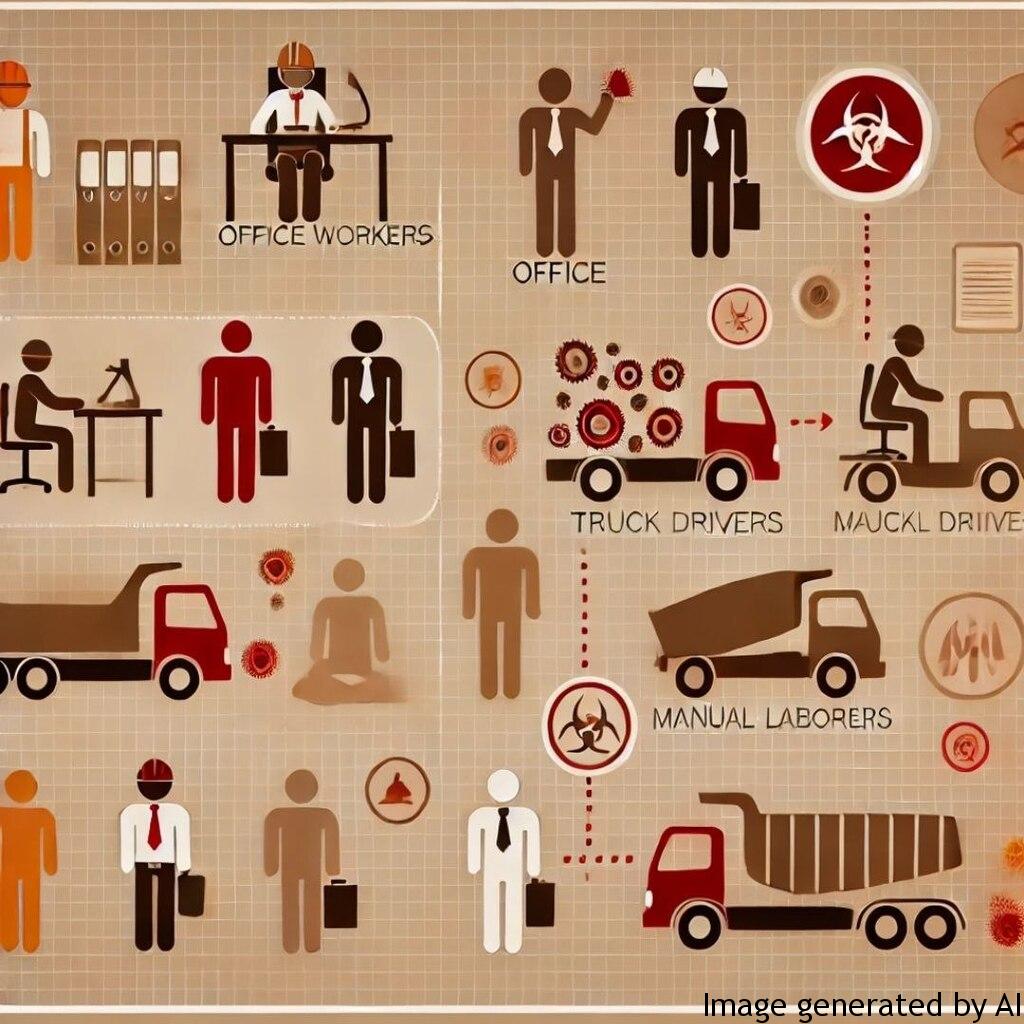Introduction
Prostatitis, an inflammation or infection of the prostate gland, can pose significant health burdens for the male working population. Not only can it result in physical discomfort and distress, primarily in the form of urinary issues, it can also impact psychological well-being, imposing challenges in both personal and professional life. Occupational hazards that increase the risk of developing prostatitis require more attention to better understand how work contexts can influence men’s health. In this article we explore the gender expectations in play, how they impact men’s psychological health, and how we might improve these conditions.
Gender Expectations and Their Influence on Men’s Psychological Health
In many societies, traditional gender expectations demand that men work persistently in physically or mentally challenging occupations. From hard labor in construction or manufacturing fields to intense cognitive efforts in finance or technology sectors, men often face work stress that could indirectly lead to prostatitis.
Work Stress and Prostatitis
Continuous work stress can influence overall health and well-being, impairing the immune system’s functioning, which, in turn, makes men more vulnerable to infections, including those causing prostatitis. Moreover, prolonged sitting, a common occurrence in many modern occupations, can exacerbate chronic prostatitis symptoms.
Masculinity Norms and Health Behaviors
Masculinity norms, which often encourage risky health behaviors and disvalue disease disclosure and help-seeking, can heighten the likelihood of prostatitis progression and persistence. Indeed, men are often expected to endure discomfort or pain and are less likely to seek preventive care or early treatment, which, with prostatitis, is critical.
Examples of How Gender Roles Can Influence Men’s Lives
When adhering strictly to traditional gender roles, men can feel pressured to suppress their health issues and continue working despite any physical discomfort. For instance, a male employee working in an office may ignore the beginning stages of prostatitis, justifying it as a minor inconvenience. This stoic mentality often delays necessary medical intervention, allowing a readily treatable condition to potentially evolve into a chronic problem. Also, in jobs requiring extended periods of sitting or heavy lifting, men may be more prone to developing or aggravating prostatitis yet avoid addressing it properly due to workplace expectations or fears of job insecurity.
Tips to Improve Psychological Health Considering Gender Roles
Improving men’s psychological health with respect to gender expectations and occupational risks involves a multifaceted approach.
Promote Regular Medical Check-ups
Encourage men to participate in regular medical examinations, which can lead to early detection and treatment of prostatitis. Employers can provide health education sessions, aiming to foster a culture that values health and wellbeing.
Encourage Open Discussion
Encourage open discussions about discomfort or illness at work. This can create a supportive work environment where men feel more comfortable attending to their health conditions promptly without fear of judgement or discrimination.
Redefine Masculinity Norms
Workplace programs should consider addressing masculinity norms that implicitly demand toughness and silence on health matters. Promoting a more comprehensive and inclusive idea of masculinity—one that underscores the importance of health—can be a strong step toward managing occupational risks for prostatitis and other male-dominated health conditions.
Conclusion
Acknowledging the occupational risks for developing prostatitis in men involves recognising the intersections between work contexts, gender norms, and health behaviors. By promoting open and supportive work environments, and by reconsidering masculinity norms that undermine men’s health, we can better address prostatitis. These transformations may provoke not only a reduction in prostatitis cases but also, more broadly, lead to enhanced physical and psychological well-being for men within, and beyond, the workplace.

